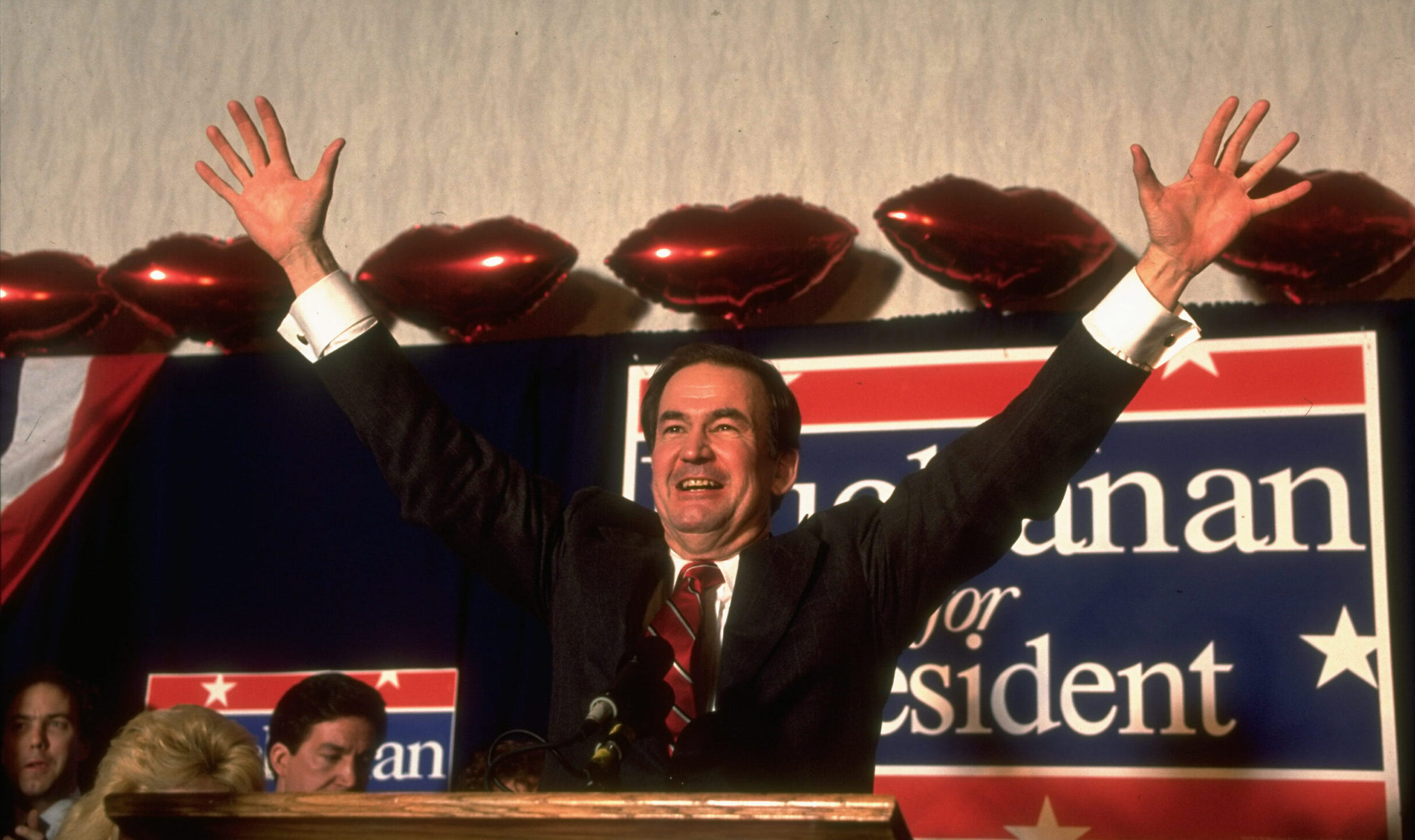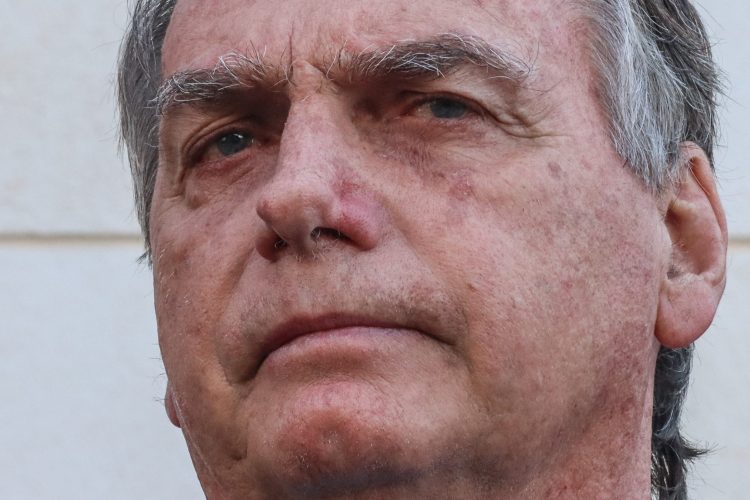
On December 2, 2023, in the modest gymnasium of a community college in Cedar Rapids, Iowa, President Donald Trump addressed a raucous crowd of supporters. As he spoke about the enduring force of the movement he ignited in 2015, he paused to reflect on a man many had forgotten—but whose ideas are increasingly animating the rising generation of conservatives.
“You know there was a man, Pat Buchanan, a good guy, a conservative guy,” Trump began.
A sudden, collective cheer erupted from the left side of the stage—unmistakably youthful, unexpected in tone. “Wow! Young people, they know him,” Trump responded with a mix of surprise and amusement.
The cheering came from a group of College Republicans—mostly young Midwestern men. They represented more than just campus enthusiasm. They were the surface current of a deeper, surging tide within the American right: a generation of young conservatives who have not merely rejected progressive orthodoxy, but who have turned their backs on the neutered, market-centric consensus that long dominated Republican politics.
Their affinities lie not with Reaganite optimism or Bush-era globalism, but with the sobering, culture-first realism of Pat Buchanan. These are the heirs to the original Buchanan Brigade, animated by a blend of cultural traditionalism, economic nationalism, and a deep-seated skepticism toward America’s post–Cold War trajectory. They’re not interested in conserving the status quo. They want to recover something lost.
Three developments define the social fabric of 21st-century America: the triumph of multiculturalism, the commodification of the consumer, and the cultural conquest of the Left. For decades, neither major party offered a meaningful response. Democrats embraced the transformation; Republicans timidly adjusted to it. In the 1990s, Buchanan was virtually alone in warning that the West was in decline—culturally, spiritually, and economically. The relative prosperity and comfort of the ’90s muffled his prophecy, and few listened.
Then came the Great Recession. For millions of Americans, it was more than an economic downturn—it was the unveiling of a deeper, festering crisis. Young people, in particular, felt it viscerally. The America they inherited no longer resembled the country celebrated in their parents’ stories or history books. The economy seemed rigged, the culture foreign, and the future grim.
By the time Donald Trump descended the escalator in 2015, a vanguard of young men had already begun rejecting the stale dogmas of Conservatism, Inc. They were the ideological foot soldiers of Trump’s first campaign—angry, disillusioned, and increasingly well-read. What started as a populist rebellion quickly matured into something more coherent.
Tax cuts and platitudes about the Constitution no longer sufficed. Legal immigration was no longer seen as harmless. Endless foreign aid and wars of choice were now understood as betrayals—not of international obligations, but of national ones. The refrain “Democrats are the real racists” gave way to “Stop playing by the Left’s rules.” Conservatism, these young rebels concluded, should not exist to preserve the wreckage of liberalism—it should stand to restore greatness.
It is no surprise, then, that Buchanan’s The Death of the West has become a sacred text among this emerging young right. In an era when most of their peers don’t read, these young conservatives have made it required reading. It has even shaped elected officials. The third-youngest vice president in U.S. history—himself a product of the Midwestern populist realignment—publicly cited Buchanan’s work as formative in 2021 during an interview with David Freiheit.
This revival of Buchananite thought has unnerved many in the conservative establishment. The backlash has come not just from the left, but from within the right—from those who seek to redefine conservatism as a more polite version of liberalism. Joel Berry of The Babylon Bee, for example, dismissed the “Pat Buchanan Right” as radicals, himself seemingly more comfortable cracking Reagan-inflected jokes than grappling with the real challenges faced by today’s young workers, parents, and future homeowners.
But the old consensus is crumbling. The new generation doesn’t want talking points; they want answers. They see through the empty gestures of conservative influencers who quote the Founders one minute and promote materialism the next. The polite right has had its time—and failed.
While Trump may be the most visible beneficiary of Buchanan’s intellectual legacy, the future belongs to those young men and women now entering the institutions of politics, media, and civic life. Their influence will not be limited to elections, but to the cultural soil out of which political movements grow.
Subscribe Today
Get daily emails in your inbox
Buchanan was once a lone voice, a dissident within his own party. Today, his ideas no longer echo in isolation. They resound in lecture halls, in podcasts, in online reading groups, and in quiet conversations among friends questioning what went wrong with the American dream.
It is likely that Buchanan will not live to see the full fruit of this realignment. But it is his vision—of a nation rooted in faith, heritage, and cultural continuity—that may yet shape the American right for decades to come. This is his final, and perhaps most enduring, gift to the country he tried so long to save.
The views expressed in this article are the author’s own.


